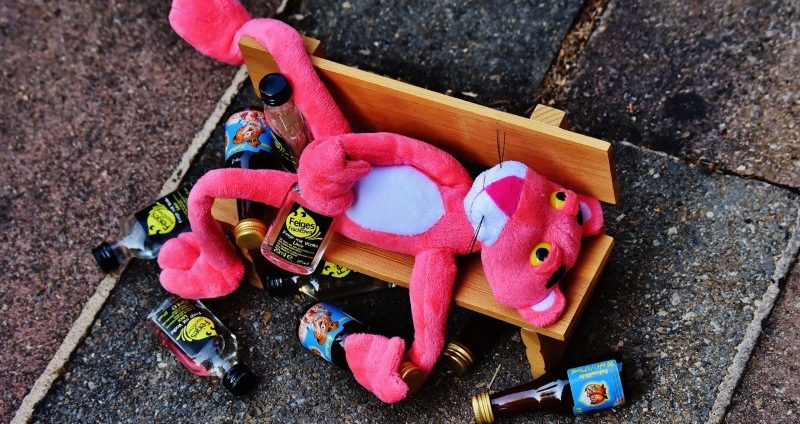Dietary management of Non-alcoholic fatty liver disease

Non-alcoholic liver disease (NAFLD) is defined as a build-up of fat in the liver due to irregularities in the metabolic systems of the body. A healthy liver contains little or no fat. Alcohol also causes a fatty liver, thus NAFLD is non-alcoholic and is related to a genetic tendency to a fatty liver and usually to being overweight. Fatty liver disease is becoming increasingly common in society and there is increasing concern about levels of obesity in general, particularly in children. This blog is written with regard to life-style changes, particularly around diet, which will help those with NAFLD. Medical investigations and treatment should be discussed with your doctor.
The genetic condition which is linked to NAFLD is called the ‘metabolic syndrome’ and also leads to diabetes through insulin resistance, and to high blood cholesterol. Central obesity is common giving the ‘apple’ body shape, which increases the waist circumference. You should definitely lose weight if you waist is more than 94cm (37ins) if male and more than 80cm (31.5ins) if female, irrespective of your height. High-risk measurements are more than 102cm (40ins) for men, and 88cm (34ins) for women. If this is the case please see your doctor. Body Mass Index is also a measure of obesity and can be calculated here – https://www.nhs.uk/live-well/healthy-weight/bmi-calculator/.
The most common cause of build up is a type of fat gained from dietary sources called triglyceride. Foods which are high in fat and sugar contain triglycerides. Triglycerides are also be made in the liver from sugars and proteins.
Most people with NAFLD have no symptoms, so it is usually identified after a blood test or on ultrasound. If detected, further tests will be carried out to see what stage the disease is at. Mild fatty liver may do no damage to the liver but fat deposits in the liver (steatosis) can lead to inflammation, which is called non-alcoholic steatohepatitis (NASH). Inflammation in the liver can lead to scarring of the liver (fibrosis). Eventually fibrosis may cause nodules to form in the liver (cirrhosis) and if severe this may interfere with liver function and blood flow. If this progresses the liver may ultimately fail.
This blog explores some of the things that can be done to manage the disease if you have it and some things to try to avoid getting it in the first place.
Lifestyle management
Alcohol
Even though NAFLD is not caused by alcohol, drinking will worsen the condition. Alcohol effects the normal cycle of metabolism and this can lead to the storage of fat deposits in the liver. If you are diagnosed with NAFLD you should avoid alcohol but do discuss this with your doctor.

Diet and Weight Loss
Not everyone who is overweight will have a fatty liver and not everyone who has a fatty liver is overweight but there is a close relationship between the two. Naturally, if you are overweight you are at much higher risk of fatty liver disease. By taking measures to lose pounds you can reduce your chance of developing the condition or help reverse the process at any stage. The advice here is to avoid crash dieting as this can result in more fat being deposited in the liver due to the release of fatty acids from fat tissue that swamp the liver, aiming for a weight loss of about 0.5 – 1kg each week. To lose weight avoid high sugar/high fat foods, and those drinks rich in fructose syrup and instead increase your fruit and vegetable consumption. If you already have the disease and have managed to lose weight, a recent large and well-conducted study found that weight loss is best maintained if you stick to a moderately high protein and low glycaemic index diet. For further information on the glycaemic index of foods: Click here. As part of this diet continue to keep to smaller servings but ensure to include a good portion of protein with every meal. This could be eggs with breakfast or some fish, chicken or pulses with lunch and dinner; accompanied by low glycaemic index carbs such as multigrain bread, oat-based cereal, basmati rice or sweet potatoes.
It is important to adjust your diet in a way that means you are still enjoying your food so that you can maintain the change in lifestyle. There is plenty of research to show that ‘fad’ diets often lead to only short term benefit with weight piling back on when they stop. We should all be adjusting our diets to be healthy, eating more fruit and vegetables and avoiding sugary foods and filling ourselves with carbohydrates. This does not mean avoiding all enjoyable foods so long as that overall there is a good balance. Importantly, although people metabolise calories at different rates, it is important for each of us to avoid eating more food than we use up in our daily activities.
Exercise
Exercise is very important as part of a long-term healthy life-style but again should be long-term change and therefore must be enjoyable or at least pleasantly tolerable. If you do regular exercise this can ‘kick-start’ the metabolism into using up fatty liver deposits. Try to include at least 45 minutes of fast walking (walking should make you feel warm and slightly breathless – not just ambling about!). Vigorous exercise can also be very helpful. National health guidelines suggest 150 minutes of moderate activity and 75 minutes of vigorous exercise per week with some muscle strength activity but importantly anything is better than none at all.

Overall NAFLD and often be managed by gradual weight loss coupled with increased exercise. We suggest talking to your doctor before you take high dose vitamin, mineral or herbal supplements. Occasionally, supplements and herbal preparations may actually cause liver damage. There no commonly used medical treatments for NAFLD, though research is in progress in this area. There may be important investigations to consider to look at other aspects of the condition and it is important to discuss the management of your condition with your doctor.
These are just a few helpful things that you could try to do yourself to avoid getting the condition (especially if you are high risk i.e. have diabetes) or manage the disease if you already have it. If you want a more personalised approach to managing your diet then don’t hesitate to contact either Sian and if you need medical advice on NAFLD or other gastrointestinal and liver diseases then Andrew will be able to help. Please use the following link to find out how to make and make an appointment with them.
This blog was written by a student dietitian Frankie Ebdon, with support from Sian Shepherd (Specialist Gastroenterology Dietitian) and Dr Andrew Millar (Consultant Gastroenterologist).
Tags: Dr Andrew Millar, Liver disease, Metabolic syndrome, NAFLD, Non-alcoholic liver disease, Sian Shepherd
0 Comment
Leave a Reply